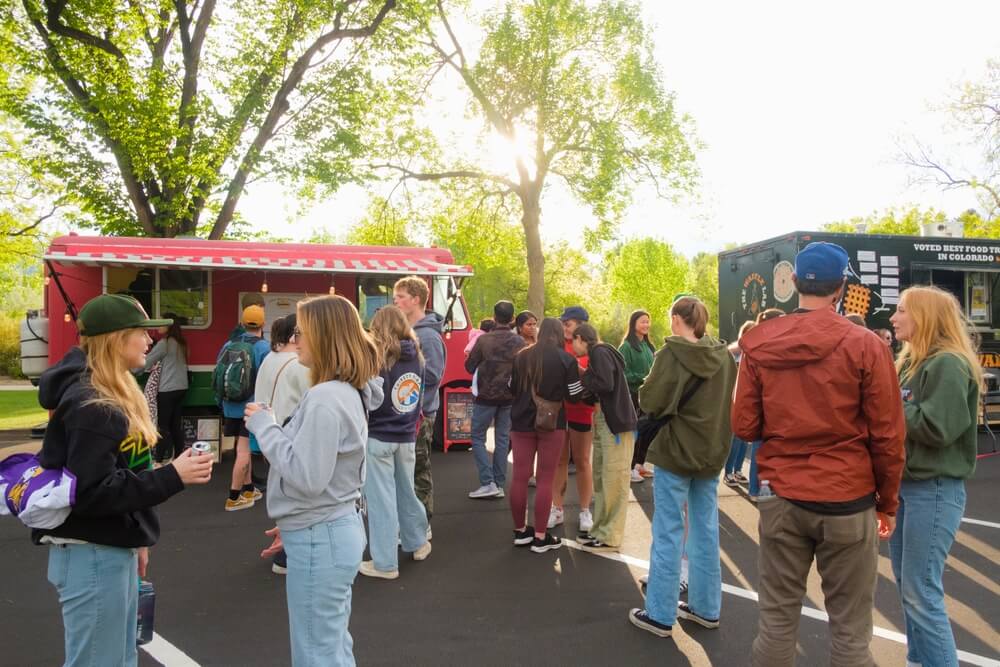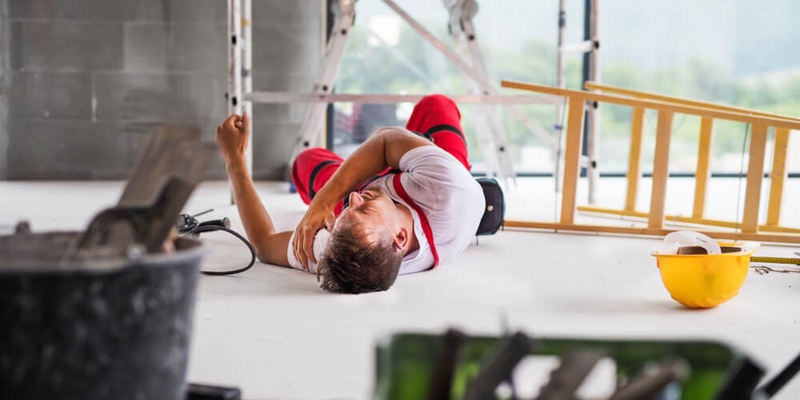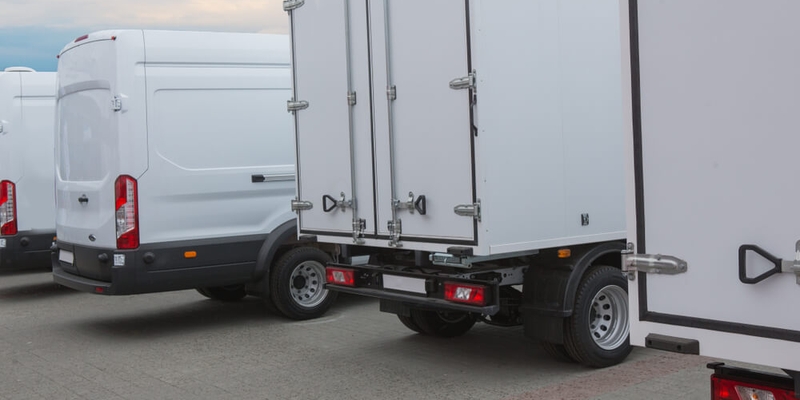
If you are not redirected within 30 seconds, please click here to continue.
Samedi: 10h – 16h HAE

If you are not redirected within 30 seconds, please click here to continue.
If you are not redirected within 30 seconds, please click here to continue.
Insuring your summer business, from food trucks to ice cream stands

Table of Contents
Did you know that food trucks alone represent a $1 billion industry in Canada and continue to grow every year? But before you hit the road or set up your own shop, there’s one step you can’t afford to skip: getting the right insurance.
In the face of equipment breakdowns, weather damage, lawsuits and food safety issues, the right insurance coverage can help you keep on truckin’.
So, what does it take to insure your summer food venture? At a minimum, you’ll want general liability insurance to cover accidents, commercial property insurance for your equipment, and product liability coverage in case of food-related incidents.
Depending on your setup, you might also need protection for equipment breakdowns, business interruptions, or even liquor liability if you serve alcohol.
Why you need insurance for your summer businesses
While sunny days bring bustling crowds, unexpected challenges can jeopardize your success if left unaddressed.
Here are some common risks for summer businesses:
- Equipment breakdowns
- Weather-related damage
- Legal troubles
- Theft or property damage
Repairs, replacement costs, and lost income can quickly add up, especially in the food service industry, with its razor-thin margins. Insurance acts as a safety net, allowing you to bounce back without major setbacks.
What are the types of insurance coverage available for summer food truck businesses?
To mitigate risk and protect your investment, here are five key types of insurance coverage that are available and worth considering for your moveable food business:
1. General liability insurance
This is the backbone of business insurance. General liability covers costs related to third-party injuries or property damage resulting from your business operations.
For example, a customer trips over an electrical cord near your food truck, sprains their ankle, and demands compensation. General liability insurance would help cover medical expenses and legal fees.
2. Commercial property insurance
If your business owns physical assets, such as a truck, stand, or specialized equipment, you need commercial property insurance. This coverage protects against theft, damage, or loss caused by events like fire or natural disasters.
For example, if a sudden summer storm knocks a tree branch onto your food truck, damaging the roof and equipment inside, commercial property insurance can help cover repair costs.
3. Business interruption insurance
If the damage from that summer storm prevents you from operating your business, business interruption insurance can cover some lost income.
Whether it’s a refrigeration system failure or major damage, unexpected events can cause prolonged downtime, impacting your revenue. Business interruption insurance compensates for lost income during such periods, helping you stay afloat financially.
4. Equipment breakdown insurance
Specialized machinery is often the heart of summer businesses. Equipment breakdown insurance covers repair or replacement costs for essential tools in the event of mechanical failure.
For instance, let’s imagine on a particularly busy day, your soda machine malfunctions. With equipment breakdown insurance, you can quickly get it repaired or replaced, minimizing interruptions.
5. Product liability insurance
Product liability insurance is a must for businesses serving food and drinks, especially in Canada where meeting safety standards is crucial. It protects you if a customer gets sick or has an allergic reaction caused by your products.
For example, if someone experiences food poisoning after buying a meal from your truck, this coverage can handle the financial fallout.
Read more: Professional vs. general liability insurance: What coverage does your business need?
Recommended add-ons for food and beverage insurance coverage
Basic insurance coverage provides a solid foundation, but depending on your business, you may want to consider additional coverages. Here are some key add-ons that can truly safeguard your operations:
Liquor liability insurance
If your business serves or sells alcohol, liquor liability insurance protects you from claims related to damage or injuries caused by intoxicated customers.
For instance, if a customer leaves your venue and is involved in an accident, this insurance can help manage the legal and financial repercussions. Liquor liability insurance is highly recommended, especially in Canada, where liquor laws are strictly enforced and alcohol-related incidents can lead to substantial costs.
Spoilage insurance
Perishable items are the backbone of most food and beverage businesses, and spoilage insurance ensures these items are protected. This add-on coverage applies to inventory stored on your business premises, including fresh produce, dairy, meats, and prepared foods.
For example, if a power outage causes your refrigeration system to fail and your stock of ingredients spoils, this insurance can help you recover the cost of the lost inventory. Given the unpredictable nature of power outages or equipment breakdowns, spoilage insurance can save you when unexpected events strike.
Employee theft coverage
Business owners make a lot of effort to hire the right people, but employee theft can occur. This coverage protects you from financial losses if an employee steals cash, inventory, or other valuables (like rare and expensive spirits) from your business.
Typically, you’ll need to provide evidence such as security camera footage or inventory records, and the theft should involve a significant amount to qualify for the claim.
Learn more: How to get insurance for your company vehicle
How much does insurance cost for your summer food truck or stall?
For most small- to medium-sized food truck businesses, the cost of a standard liability policy typically falls between $700 and $800 per year, with more comprehensive policy packages generally priced in the range of $1,000 to $1,200 annually.
The exact cost of your insurance will depend on a variety of factors tied to your specific operations. Here are some key elements that can influence your premiums:
- Your overall operations:
The nature of your business plays a big role. For example, full-service restaurants have higher insurance costs due to extensive equipment and greater risks from higher customer volume and complex food prep. In contrast, a small coffee shop with simpler setups and limited menus has lower risks.
- Type of food and drink offered:
Whether you serve grab-and-go snacks, gourmet meals, or alcohol, the type of food and beverages you provide affects the level of risk and the necessary coverages. For example, serving alcohol increases liability risks, as you could be held responsible for incidents caused by intoxicated customers. This requires liquor liability insurance, which adds to your overall premium
- Annual revenues:
Businesses with higher revenues may have increased exposure to claims, which can influence premium costs.
- Number of employees:
The size of your team is considered since more employees can increase risks related to accidents or potential liabilities.
- Specified coverages & limits:
The types of coverage you choose, as well as the coverage limits, directly impact your overall premium. Adding additional protections like spoilage or liquor liability will cost more but provide valuable security.
- Deductibles:
A higher deductible typically reduces your annual premium, while a lower deductible might increase costs but minimize out-of-pocket expenses for claims.
Provincial regulations, licenses, and permits
Each province has its own specific standards for liability limits, food safety protocols, and operational requirements. Your insurance policy must fully align with these standards to ensure compliance and protect your business.
Licenses and permits
Insurance providers tend to view businesses with proper documentation as lower risk, which could lead to lower premiums.
If your business operates in multiple cities or provinces or is highly mobile, it’s mandatory to meet the insurance requirements for every area you serve.
For instance, in the City of Vancouver, obtaining a mobile food vending permit requires submitting a valid liability insurance certificate. When you purchase food truck insurance, this certificate will be provided as evidence for licensing authorities, giving you one less thing to worry about.
Similarly, Ontario has its own set of requirements for food truck business to operate. You’ll need a Motorized Refreshment Vehicle Owner License, a Mobile Food Vending Permit, a Health Inspection Certificate, proof of $2,000,000 in Commercial General Liability (CGL) insurance, and a Safety Standards Certificate from the Ministry of Transportation valid within 36 days.
Learn more: Certificate of insurance (COI): What is it and do you need one?
Seasonality adjustments
If your business operates seasonally, like an ice cream stand that’s only open in the summer, inform your insurer. Many providers allow rate adjustments to prevent you from overpaying for coverage during the off-season.
Related: What grants does your small business qualify for?
How to choose the right insurance policy
Selecting the right insurance can feel overwhelming, but following these simple steps can make the process smoother and more effective:
- Assess your needs: Start by evaluating your business operations and identifying potential risks. Do you rely heavily on expensive equipment? Is your business mobile? Consider all scenarios.
- Compare options: Look beyond pricing. Compare coverage limits, exclusions, and provider reputations. Online comparison tools make it easy to compare multiple providers and find the right match.
- Consult an expert: Insurance brokers can help tailor policies to meet your specific needs. They’ll guide you through the fine print and ensure your business has adequate protection.
Related: Does your home-based business need a home-insurance add-on or commercial property insurance?
Tips for reducing insurance costs
No one wants to overspend on insurance. Here’s how to save money while still getting the protection you need:
- Practice risk management: Regularly maintain your equipment and diligently train employees to prevent breakdowns and accidents. This will reduce the likelihood of costly claims.
- Bundle insurance policies: Many providers offer discounts when you bundle multiple types of coverage. For example, combining general liability and commercial property insurance may lower your premiums.
- Review regularly: Businesses evolve, and so do insurance needs. Schedule annual reviews to ensure your coverage aligns with current operations and explore opportunities for cost savings.
Whether you’re keeping yourself covered against accidents, equipment failure, or unexpected closures, business insurance gives you the peace of mind so you can focus on what you do best.
Don’t wait until it’s too late. Start exploring your insurance options today and give your summer business the protection it needs to thrive.
Read next: Key dates in 2025 that small business owner should know
Get money-saving tips in your inbox.
Stay on top of personal finance tips from our money experts!










